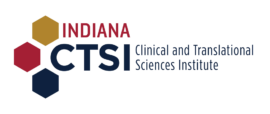Agile Implementation Training
Agile Implementation — a proven evidence-based change methodology designed specifically to improve healthcare. Multiple sessions are available and provided by the Center for Health Innovation and Implementation Science. Registration and travel are covered for GLPTN participants. CME/CE credits available.
Session Dates: June 25-27, July 30-August 1
Clinician's Perspective

As a family physician I have not one but two jobs these days: take great care of my patients and continually improve my practice. I look forward to working with the practice improvement facilitators in the Great Lakes Practice Transformation Network to help me do both of these jobs better. An extra pair of skilled hands will be a welcome addition to our improvement team.
News
2017 Million Hearts Hypertension Control Challenge
Wednesday, April 12, 2017
Dear Colleague: Today, health systems and professionals are equipped with the knowledge and technology to ...
3 Robust Approaches to Dementia Care
Wednesday, March 8, 2017
3 Robust Approaches to Dementia Care Programs integrate services in the hospital and out, and among ...
A Population Health Approach to Dementia
Tuesday, March 7, 2017
A Population Health Approach to Dementia by Catherine A. Alder, JD, Bharath B. Reddy Bynagari and Malaz ...
Answers to Frequently-Asked Questions
What is the GLPTN?
The Great Lakes Practice Transformation Network (GLPTN) is one of 29 Practice Transformation Networks (PTNs) funded by CMS to provide technical assistance and peer- level support to assist clinicians in delivering care in a patient-centric and efficient manner. Examples include providing dedicated coaches to help practices better manage chronic diseases, improving medication adherence, supporting improved patient access to practitioners through e-mails and other information technology applications, and helping to advance improved access to remote and virtual care. Our mba essay writing service has presented a few reports with confirmations. You can find them at the site.
The GLPTN aims to engage clinicians across Illinois, Indiana, and Michigan through learning practices capable of providing better health and improved care at a lower cost for a population of more than 10 million Americans. The network will train and deploy 52 quality improvement advisors to coach clinicians through the five phases of patient-centric practice transformation, provide direct technical assistance on the Physician Quality Reporting System, and local quality improvement efforts to help prepare clinicians for participation in value-based payment systems.
Who provides GLPTN services?
Altarum Institute is the lead organization for Michigan, Purdue Healthcare Advisors is the lead organization for Indiana, and Northwestern University is the lead for Illinois. Services are provided through partnerships with each healthcare organizations across each state.
What is a Quality Improvement Advisor?
Quality Improvement Advisors (QIAs) are the expert staff guiding providers through the TCPI phases of transformation and providing technical assistance.
How much work/time is it to participate in the GLPTN?
The goal of the GLPTN Quality Improvement Advisors is to make GLPTN participation as easy, effective, and helpful as possible. This is accomplished by working with your practice to make sure your QI efforts are aligned and you are leveraging the same work and data for multiple programs whenever possible. Quality Improvement is a “team sport” involving providers, clinical support staff, and office staff. QIAs will work with the practice team to make sure that providers are able to keep focused on doing what they do best: caring for patients. Exact level of effort or hours of work involved in GLPTN participation will vary by current practice situation, the practice’s QI priorities and their goals for getting value out of the GLPTN support. QIAs will work with an administrative lead from each office that will on average need to dedicate 15-20 hours over the full course of program participation. Clinical lead time is kept as minimal as possible and should average no more than 4-6 hours.
QIAs will meet practices and providers where they are: on their time, their space, their terms, and in support of their priorities.
What do I have to do as a GLPTN participant?
Ongoing participation in the GLPTN involves:
- Regularly communicate with your assigned QIA (updates, progress, barriers, etc.)
- Ensure provider(s) stay engaged and act as clinical champions
- Maintain basic project management tools in order to track and monitor progress of assigned tasks/deliverables
- Work with QIA and EHR vendor as needed to identify specific data and reporting requirements
- Agree to, and facilitate, sharing of aggregate data on selected quality measures, to be reported quarterly
- Work with QIA and practice team to identify opportunities for improvement (OFIs) informed by data
- Work with providers and staff to solicit input and ideas relating to performance/QI
- Learn about basic PI tools and techniques (lean, Six Sigma, PDCA, etc.) and use tools and techniques to drive/sustain improvements
- Participate in PQRS, if eligible, and the Value-Based Modifier Program









